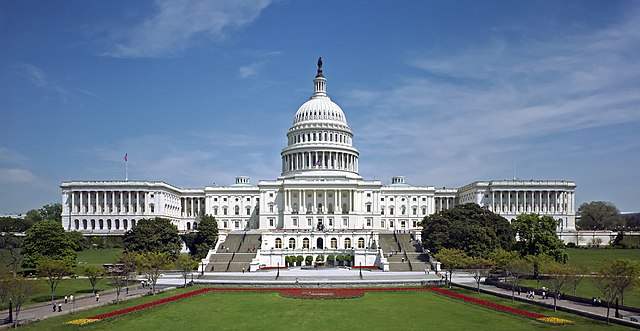A motion or vote of no confidence is a formal expression by a deliberative body as to whether an officeholder is deemed fit to continue to occupy their office. The no-confidence vote is a defining feature of parliamentary democracy which allows the elected parliament to either affirm their support or force the ousting of the cabinet. Systems differ in whether such a motion may be directed against the prime minister only or against individual cabinet ministers.
The outgoing prime minister Mariano Rajoy (right) congratulates the incoming prime minister Pedro Sánchez (left) upon losing the no-confidence vote on 1 June 2018.
A legislature is a deliberative assembly with the legal authority to make laws for a political entity such as a country, nation or city. They are often contrasted with the executive and judicial powers of government. Legislatures can exist at different levels of government–national, state/provincial/regional, local, even supranational. Countries differ as to what extent they grant deliberative assemblies at the subnational law-making power, as opposed to purely administrative responsibilities.
United States Capitol building, where the legislature of the United States, the United States Congress, meets, located in Washington, DC
The Congress of the Republic of Peru, the country's national legislature, meets in the Legislative Palace in 2010.
The German Bundestag, its theoretical lower house
The Australian Senate, its upper house





